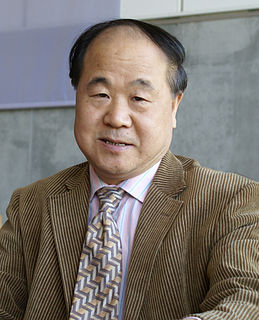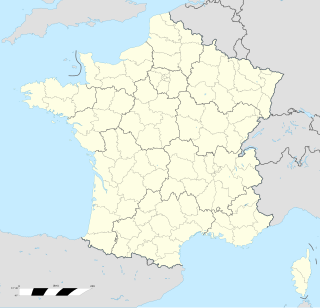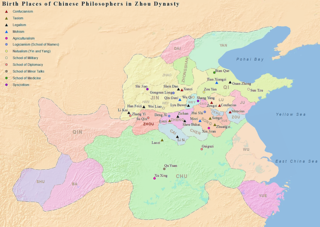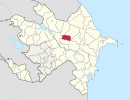
Yan XishanIPA: [jɛ̌n ɕǐʂán]; 8 October 1883 – 22 July 1960) was a Chinese warlord who served in the government of the Republic of China. He effectively controlled the province of Shanxi from the 1911 Xinhai Revolution to the 1949 Communist victory in the Chinese Civil War. As the leader of a relatively small, poor, remote province, he survived the machinations of Yuan Shikai, the Warlord Era, the Nationalist Era, the Japanese invasion of China and the subsequent civil war, being forced from office only when the Nationalist armies with which he was aligned had completely lost control of the Chinese mainland, isolating Shanxi from any source of economic or military supply. He has been viewed by Western biographers as a transitional figure who advocated using Western technology to protect Chinese traditions, while at the same time reforming older political, social and economic conditions in a way that paved the way for the radical changes that would occur after his rule.

Yan'an is a prefecture-level city in the Shanbei region of Shaanxi province, China, bordering Shanxi to the east and Gansu to the west. It administers several counties, including Zhidan, which served as the headquarters of the Chinese Communists before the city of Yan'an proper took that role.

Yan was an ancient Chinese state during the Zhou dynasty. Its capital was Ji. During the Warring States period, the court was also moved to another capital at Xiadu at times.

Yan Liang was a military general serving under the warlord Yuan Shao during the late Eastern Han dynasty of China. He was slain by Guan Yu at the Battle of Boma.

Guan Moye, better known by the pen name Mo Yan, is a Chinese novelist and short story writer. Donald Morrison of U.S. news magazine TIME referred to him as "one of the most famous, oft-banned and widely pirated of all Chinese writers", and Jim Leach called him the Chinese answer to Franz Kafka or Joseph Heller.

The Yan Emperor or the Flame Emperor was a legendary ancient Chinese ruler in pre-dynastic times. Modern scholarship has identified the Sheep's Head Mountains just north of Baoji in Shaanxi Province as his homeland and territory.

Yan Yan was a military officer who served under Liu Zhang, the Governor of Yi Province, during the late Eastern Han dynasty of China. Although there is very little information about Yan Yan in historical records, he is given a much prominent role in the 14th-century historical novel Romance of the Three Kingdoms as a general who initially serves under Liu Zhang before switching allegiance to Liu Bei later.
Li Yan, courtesy name Zhengfang, also known as Li Ping, was a military general of the state of Shu Han during the Three Kingdoms period of China. He climbed to the zenith of his career when he was asked by the Shu emperor Liu Bei to be the military paramountcy and co-regent alongside Zhuge Liang for his son and successor, Liu Shan. After the death of Liu Bei, Li Yan was given the rank of General of the Vanguard which was last held by Guan Yu back in 220. Li served most of his career in the mid and late 220s as the area commander for the Eastern Front centered in Yong An with Chen Dao as his deputy; he never faced any major battles in his position. However, during the 230s and the 4th of Zhuge Liang's Northern Expeditions, Li Yan was given a higher rank of General of the Agile Cavalry, below only Zhuge Liang. He was assigned to handle logistics, but he was unable to deliver supplies to Zhuge Liang's army in a timely manner. After his attempt to fraudulently cover his inability to follow commands, Li Yan was stripped from positions and power.
Zhang Yan, born Chu Yan, also known as Zhang Feiyan, was the leader of the Heishan bandits during the late Eastern Han dynasty of China.
Yan Xing, courtesy name Yanming, later renamed Yan Yan, was a military officer serving under the warlord Han Sui during the late Eastern Han dynasty of China.
Yan Baihu was a bandit leader active in the Wu or Jiangdong region during the late Eastern Han dynasty of China.
Yan Rou was a military general of the state of Cao Wei during the Three Kingdoms period of China. He previously served under the warlord Cao Cao in the late Eastern Han dynasty.
Cui Yan, courtesy name Jigui, was an official serving under the warlord Cao Cao during the late Eastern Han dynasty of China. In his early life, he served briefly in the local district office before leaving home to study under the tutelage of the Confucian scholar Zheng Xuan. In the late 190s, Cui Yan became a subordinate of the northern warlord Yuan Shao but did not make any significant achievements under the latter, who ignored his suggestions. Following Yuan Shao's death in 202, Cui Yan was imprisoned when he refused to help either of Yuan's sons—Yuan Shang and Yuan Tan—in their struggle over their father's territories. After he was freed, Cui Yan came to serve under Cao Cao, the de facto head of the Han central government. Throughout his years of service under Cao Cao, Cui Yan performed his duties faithfully and diligently, maintaining law and order within his bureau and recommending talents to join the civil service. In 216, in an incident widely regarded as a case of grievous injustice, Cui Yan was accused of defaming Cao Cao in a letter and ended up being stripped of his post, thrown into prison and subsequently forced to commit suicide.

Yan'an Ershilipu Airport was a dual-use military and public airport serving the city of Yan'an in Shaanxi Province, China. It was opened in 1980, replacing the former Yan'an Dongguan Airport which was built in January 1936. It was closed on 8 November 2018, when Yan'an Nanniwan Airport began operation and all flights were transferred to the new airport.

Saint-Yan is a commune in the Saône-et-Loire department in the region of Bourgogne in eastern France.
Nhangu (Nhaŋu), also Yan-nhaŋu (Jarnango) is indigenous Australian language spoken by the Yan-nhaŋu, indigenous inhabitants of the Crocodile Islands off the coast of the Northern Territory. The Yan-nhaŋu language belongs to the Yolŋu Matha language group of the Yolŋu people of Arnhem Land in northern Australia. The varieties of the two moieties are (a) Gorlpa and (b) Yan-nhangu.

The Sixteen Kingdoms, less commonly the Sixteen States, was a chaotic period in Chinese history from AD 304 to 439, when the political order of northern China fractured into a series of short-lived sovereign states, most of which were founded by the "Five Barbarians," ethnic minority peoples who had settled in northern China during the preceding centuries and participated in the overthrow of the Western Jin dynasty in the early 4th century. The kingdoms founded by ethnic Xiongnu, Xianbei, Di, Jie, Qiang, as well as Han Chinese and other ethnicities, fought against each other and the Eastern Jin dynasty, which succeeded the Western Jin and ruled southern China. The period ended with the unification of northern China in the early 5th century by the Northern Wei, a dynasty that evolved from a kingdom founded by ethnic Xianbei.

The School of Naturalists or the School of Yin-yang was a Warring States era philosophy that synthesized the concepts of yin-yang and the Five Elements.
Yan Mingfu is a retired Chinese politician. His first prominent role in government began in 1985, when he was made leader of the United Front Work Department for the Chinese Communist Party (CCP). He held the position until the CCP expelled him for inadequately following the party line in his dialogues with students during the 1989 Tiananmen Square protests. Yan returned to government work in 1991 when he became a vice minister of Civil Affairs.

UFC 238: Cejudo vs. Moraes is an upcoming mixed martial arts event produced by the Ultimate Fighting Championship that will be held on June 8, 2019 at the United Center in Chicago, Illinois.














